By JULIE MINDA
"If someone told you that 117,000 Americans were going to die this year of preventable causes, wouldn't you consider that a national crisis?"

SSM Health's Monroe Clinic in Madison, Wis., used this poster to promote a mental health workshop in spring 2018 aimed at increasing awareness of potential mental health issues among farmers. The workshop was for agribusiness professionals who interact with farmers.
That was a question posed in a blog post late last year by Dr. Rod Hochman and Tyler Norris. Hochman is president and chief executive of Providence St. Joseph Health and Norris is chief executive of the nonprofit Well Being Trust. The two men were referring to the number of people in the U.S. who had died in 2017 of what mental health experts call diseases of despair. Nearly 50,000 of those deaths were suicides.
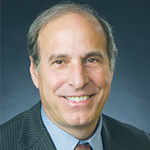
Hochman
Report after report from researchers in recent years show that suicide rates — as well as the rates for other diseases of despair such as drug addiction — have been rising dramatically nationwide and among all age groups studied. The rates of suicidality are highest among people who are young, people who are minorities and people who identify as lesbian, gay, bisexual, transgender or questioning. The Catholic health ministry is among the many sectors in the U.S. seeking to understand what is behind this national crisis — and what can be done to reverse it.

Norris
"We're seeing people continue to die prematurely due to preventable causes," says Benjamin F. Miller, chief strategy officer of the Well Being Trust, which Providence St. Joseph Health established as an independent foundation in 2016 to tackle mental health issues. Miller says, "people are crying out for help and looking for solutions."
"We cannot accept the status quo," he says of the health care sector. "We have to push for better."
Complex, multifaceted
September is Suicide Prevention Awareness Month. CHA is building awareness of the crisis of rising rates of suicide, identifying resources for evidence-based approaches to stemming the public health crisis and highlighting ministry members and others making inroads at chausa.org/suicideprevention and in a social media push.
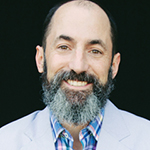
Benjamin F. Miller
According to statistics from the Centers for Disease Control and Prevention, suicide rates increased in nearly every state between 1999 and 2016, with rates rising more than 30 percent in half the states. Issue briefs from the Trust for America's Health indicate that between 2011 and 2016 suicide was the second leading cause of death for people aged 15 to 34. Research published in JAMA and research from the Suicide Prevention Resource Center and the CDC show that black children, American Indian and Alaskan Native people, LGBTQ populations and veterans are at a much higher risk of suicidality than other populations. These and other statistics are on CHA's webpage.
Michael Miller Jr., system vice president of mission and ethics for St. Louis-based SSM Health, says the roots of these "diseases of despair are so complex," with cultural, emotional, psychological, social, genetic and many other factors at play. While it's impossible to pinpoint exact causes of the spike in suicides, he says, generally speaking it is clear that a lot of people today "have lost hope and a sense of belonging."

Michael Miller Jr.
Indu Spugnardi, CHA director of advocacy and resource development, concurs. She says that especially the young people most at risk of suicide — but also the other groups with rising rates — are feeling isolated. They're less engaged with the community, with many replacing in-person connections with social media connections. Plus, many are financially stressed, unable to afford housing and unable to secure good jobs. Many have insufficient access to mental health care, she says. "These are really thorny problems," Spugnardi says. "You can't just flip a switch" to fix them.
Triggering Events
Dr. Brent Bell, a psychiatrist with SSM Health St. Anthony Hospital – Oklahoma City, adds that circumstances can push a mentally fragile person to contemplate or act upon suicidal thoughts. For instance, young people frequently are triggered by relationship problems and the elderly by health crises. Drug and alcohol dependency is highly correlated with suicide among adults, he says.
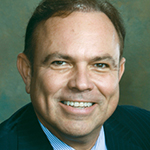
Bell
Anne De Biasi, director of policy development for Trust for America's Health, a public policy foundation, says the antecedents of suicide tend to cascade upon one another for people in mental health crisis, until problems may feel insurmountable.
Bell adds that social media can breed suicidal thoughts, in part because online bullying can exasperate sufferers' mental health concerns and also because there is much information online about how and why people commit suicide. In some ways, it can create a "contagion" effect as mentally fragile people see suicide almost glamorized online, he says.
Working together
There are public health, hospital-specific and clinical approaches that have been shown to achieve traction in reducing suicidality, say the experts who spoke with Catholic Health World.
"We all need to work together across sectors — we need to invest in prevention to reverse the trends," says De Biasi. She says what works is promoting connectedness, or ways to link people with one another; equipping people with social and emotional coping skills; and helping build protective resources for people, including by addressing the socioeconomic needs that cause people to despair.
Miller of the Well Being Trust says health and social service organizations must push for systemic change by advocating at all levels of government for public policies and investments that help the mentally ill. This can include policies that put mental health care at parity with medical care, when it comes to access and reimbursement. Miller says advocacy efforts also should support changes that reduce fragmentation in care delivery.
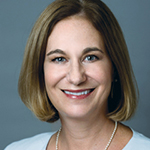
Di Biasi
Bell of SSM in Oklahoma City adds that broad awareness building and training throughout communities is important. By helping community members to understand the pervasiveness of mental health concerns, the urgency of addressing those concerns before a crisis point, and how a person in crisis can be helped, more people will be equipped to intervene. And, stigma can be reduced, he says.
Catholic social teaching
Spugnardi notes that the Catholic health ministry is well positioned to escalate its work addressing mental health concerns and suicidality. This is because ministry providers are located across the country; they already have community partnerships established; and they have expertise on-staff already — all important to making headway.
SSM's Miller says the Catholic health ministry has a track record of addressing mental health concerns holistically and has done much important work in taking on the issue of suicide. He says this work is rooted in Catholic social teaching, particularly "the idea of the dignity of the human person … in the context of promoting and protecting life."
Miller notes that the ministry's efforts to get at the heart of the issues connected with suicide are right in line with providers' call to serve the poor and vulnerable — to provide them with the care they need.
"Sometimes the vulnerable are hidden to us, but we have a special calling to seek them out," he says. And people in mental health crisis are certainly among the most vulnerable people in the U.S. today, he says. "Catholic health care, with our holistic approach and sense of hope, can provide what people in despair critically need."
Ministry providers take many-layered approach to suicide prevention
Ministry providers making suicide prevention a priority are developing comprehensive strategies that hinge on community engagement and collaboration, the integration of mental health into primary care and public policy advocacy.
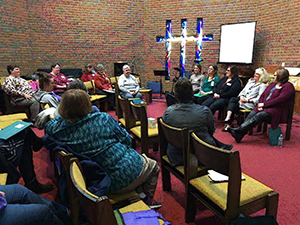
The Monroe Clinic, an SSM Health affiliate in Monroe, Wis., partnered with the University of Wisconsin to offer this workshop where farm wives learned to recognize mental stress in their family members and navigate the system to get them appropriate care.
Across the country, ministry providers are working to reduce the stigma of mental illness in order to encourage people to seek help before they are in crisis.
Some are sponsoring Mental Health First Aid trainings to equip health care workers and people throughout their communities to talk about mental illness within their professional and social networks, to recognize people who are developing a mental health issue and to steer people to professional services or other means of emotional support.
Mental Health First Aid was created in Australia. The National Council for Behavioral Health and the Missouri Department of Mental Health operate the program in the U.S. and are working to make the training as common as classes in cardiopulmonary resuscitation.
SSM Health St. Anthony Hospital – Oklahoma City offers mental health and suicide awareness training to staff and to the greater community. That facility ran a two-day suicide academy this year for the leaders of Oklahoma City behavioral health care facilities. The course was aimed at reducing suicide attempts in their patient populations. SSM Health
St. Anthony also offers crisis intervention training for police to help them better understand mental illness and de-
escalate potentially volatile situations.
SSM Health and Avera Health have created programs that target another vulnerable group — farmers. Weather extremes and record low commodity prices are taking a heavy toll in farming communities. The Monroe Clinic, an SSM Health affiliate in Monroe, Wis., has partnered with a University of Wisconsin Extension Campus to offer workshops — one for agribusiness professionals who interact frequently with farmers and the other for farmers' wives — to help them better recognize signs of severe mental distress and speak up to encourage the individual at risk to seek professional help. The Monroe Clinic also provides Mental Health First Aid training.
In January, Avera Behavioral Health, based in Sioux Falls, S.D., opened a Farmers Stress Hotline. The triage service for farmers, ranchers and their families and friends links callers to mental health providers for follow-on care.
Facility-level interventionsAvera Health, SSM Health of St. Louis and Mercy of Chesterfield, Mo., are among CHA members that have gotten behind the Zero Suicide Initiative. The nonprofit Safe Communities coordinates the initiative, which engages health care systems, mental health centers and community organizations with a role to play in suicide prevention in identifying people at risk of suicide and ensuring there is a pathway for them to get help.
Zero Suicide initiatives include training staff throughout health care facilities — not just in behavioral health — on suicide awareness and prevention; implementing mental health screening for all patients; and ensuring referral pathways, navigation and follow-up are provided to people in mental health crisis.
In line with its Zero Suicide work, SSM Health St. Anthony recently renovated its emergency department to better protect people who may be suicidal. Dr. Brent Bell, department chair of psychiatry at the hospital, says the redesigned rooms allow staff to restrict access to electrical cords and oxygen equipment so they are not accessible to patients but are to staff. Mental health technicians can assist in the care of emergency department patients.

Woods
Gaye Woods, system director of community benefit and population health for SCL Health in Broomfield, Colo., says that system also has increased its protection of emergency department patients who may be suicidal. Two of its hospitals have implemented protocols to provide more intensive intervention and follow-up for patients who are admitted to the emergency department after a failed suicide attempt.
These hospitals now have mental health experts in their emergency departments to assist with stabilization and to refer these patients — after they are cleared medically — to a crisis center outside the hospital. Both the hospitals and crisis center maintain follow-up with the patient in the ensuing weeks to ensure mental health needs are being addressed, says Woods. SCL Health will expand the concept beyond the initial hospitals, Woods says.
Like many other health care systems, SCL Health is working to integrate mental health care into its primary care clinic system. Increasing numbers of SCL Health clinics now have a mental health care professional stationed on-site so that when a primary care provider screens a patient and identifies a mental health need, the patient can see the mental health care expert without delay.
In rural SCL Health care sites, such needs are addressed through telehealth, Woods says, both because of the shortage of mental health care providers and to protect patients' anonymity. People in small towns often fear the stigma related to seeking mental health care.
Public policyBenjamin F. Miller, chief strategy officer of Well Being Trust, says his organization is helping Providence St. Joseph Health and other health care organizations across the nation to undergird their important suicide prevention work in their communities with advocacy and public policy efforts. He says local, state and federal advocacy is needed to address the fragmentation in mental health care delivery that can make it difficult for patients to access and navigate their care.
Indu Spugnardi, CHA director of advocacy and resource development, says the association and its members actively advocate for improved access to and better reimbursement for mental health services.
CHA supports legislation that would ease financial, housing and other socioeconomic burdens for vulnerable people. Addressing the social determinants of health can reduce economic stress that in turn can lower the risk of suicide, she notes.
She says of the many efforts of Catholic health care providers around suicide prevention: "When we have a shared understanding of the problem and solutions, and a shared commitment to act," much can be achieved.
— Julie Minda